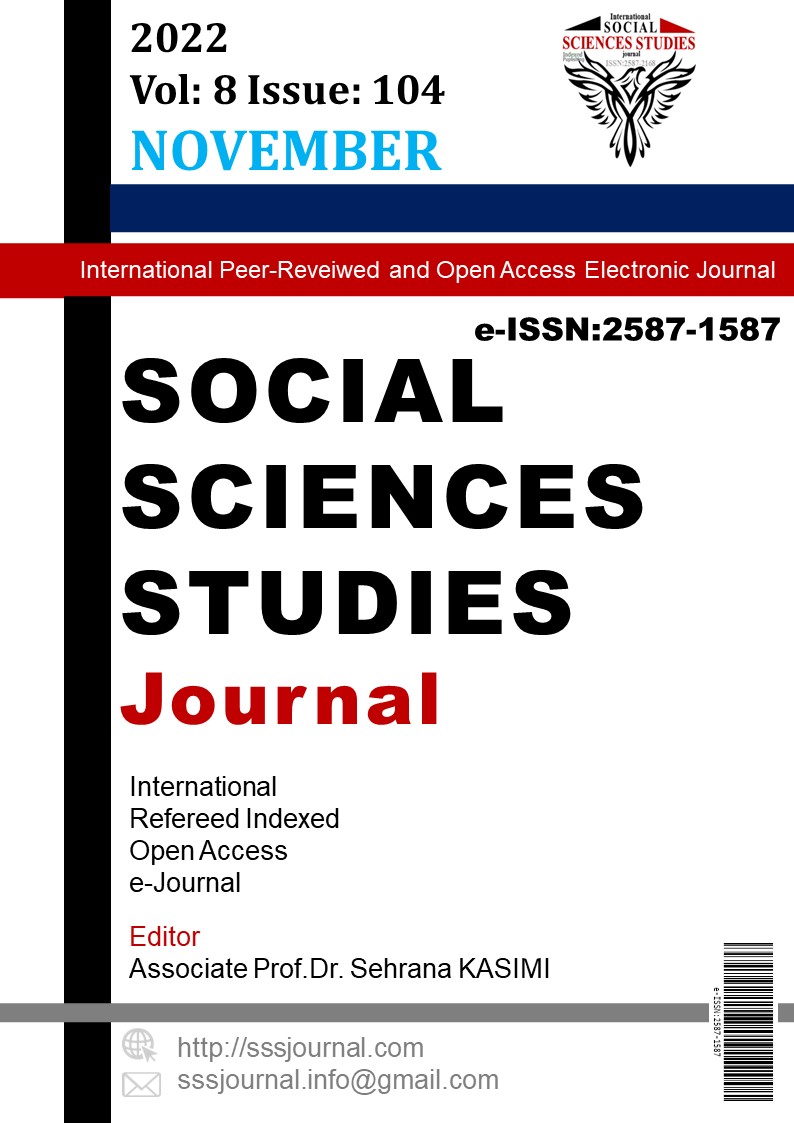Author :
Abstract
Uluslararası ticaret alanında ülkeler ve işletmeler zorlu rekabet koşulları ile karşılaşmaktadır. Ülkelerin ve işletmelerin öncelikli hedeflerinden birisi de uluslararası rekabet gücünü korumak ve geliştirmektir. Çünkü rekabet gücü yüksek ülkeler ve işletmeler uluslararası pazarlardan daha fazla pay alabilir, ülke ve marka imajını güçlendirebilir, yeni teknolojilere kolaylıkla uyum sağlayabilir.
Uluslararası ticarette rekabet gücü makro ekonomik, sosyo-ekonomik, altyapı ve işletmelerle ilgili çok sayıda faktöre bağlıdır. Rekabet gücünü korumak için teknolojik yenilikler ve ürün geliştirme başta olmak üzere, tüm bu faktörlerde iyileştirmeler yapılmalı ve rakip ülkelerin ve işletmelerin davranışı yakından izlenilmelidir.
Ancak ülkeler, zaman zaman uluslararası ticarette rekabet gücünü artırmak için parasal önlemlere de başvurabilir. Bu önlemlerden birisi de devalüasyon veya dalgalı kur sistemlerinde rekabetçi kur politikasıdır. Son yıllarda Türkiye ekonomisinde meydana gelen gelişmeler nedeniyle rekabetçi kur politikasına yönelim olmuştur. Devalüasyon ve rekabetçi kur politikası korumacı önlemlerdendir ve çoğunlukla beklenilen olumlu sonuçları sağlamamaktadır. Bu şekilde parasal önlemler yerine, ekonomide rekabet gücünü zayıflatan tüm unsurların düzeltilmesi ve kalıcı önlemler alınması daha etkilidir.
Keywords
Abstract
In the field of international trade, countries and businesses face tough competition conditions. One of the primary goals of countries and businesses is to maintain and improve their international competitiveness. Because countries and businesses with highly competitive power can get more shares from international markets, strengthen their country, and brand image, and easily adapt to new technologies.
Competitiveness in international trade depends on many factors related to macroeconomic, socio-economic, infrastructure and businesses. To maintain competitiveness, improvements should be made in all these factors, especially in technological innovations and product development, and the behaviour of competing countries and businesses should be closely monitored.
However, from time to time, countries may also resort to monetary measures to increase their competitiveness in international trade. One of these measures are devaluation or the competitive exchange rate policy in floating exchange rate systems. Due to the developments in the Turkish economy in recent years, there has been a tendency towards a competitive exchange rate policy. Devaluation and competitive exchange rate policy are protectionist measures and often do not provide the expected positive results. In this way, instead of monetary measures, it is more effective to correct all the factors that weaken the competitiveness of the economy and to take permanent measures.
Keywords
- 1. ALPAY, Yalın ve Emre ALKİN; (2019). Olaylarla Türkiye Ekonomisi, Yirminci Yüzyıl Türkiye Ekonomi Tarihi, Hümanist Kitap Yayıncılık, 3. Baskı, İstanbul.
- 2. ALTINOK, Serdar ve Murat ÇETİNKAYA. (2003). Devalüasyon ve Türkiye’de Devalüasyon Uygulamaları ve Sonuçları, Selçuk Üniversitesi Sosyal Bilimler Enstitüsü Dergisi / Yıl 2003, Sayı 9.
- 3. ARSLAN, H. Bader; (2021). Rekabetçi Kur, Rekabetçi Olmayan Ekonomi. https://www. dunya. com/ kose- yazisi/rekabetci-kur-rekabetci-olmayan-ekonomi/636356, 13 Ekim 2021 Erişim Tarihi: 16.12.2021
- 4. AYDOĞUŞ, İsmail ve Gonca DİLER; (2006). Dış Ticaret Hadlerinin Gelir Etkisi: Türkiye Üzerine Bir Uygulama. Afyon Kocatepe Üniversitesi, İ.İ.B.F. Dergisi (C.VIII ,S.1).
- 5. BEDİR, Atila; (2009). Uluslararası Ticarette Fiyata Dayalı Rekabet Gücü ile Endüstri-İçi Ticaret Arasındaki İlişki: Türk İmalat Sanayi Örneği, DPT Yayınları, Ankara.
- 6. ÇİVİ, Emin ve İbrahim EROL, Turgay İNANLI, Ece D. EROL; (2008). Uluslararası Rekabet Gücüne Farklı Bakışlar. Ekonomik ve Sosyal Araştırmalar Dergisi, Bahar 2008, Cilt:4, Yıl:4, Sayı:1, 4:1-22
- 7. DEDEKOCA, Ersin; (2018). Dış Ticaret Hadleri ve Anlattıkları. Aydınlık Gazetesi. 09.02.2018. https://www.aydinlik.com.tr/koseyazisi/dis-ticaret-hadleri-ve-anlattiklari-79502 Erişim Tarihi: 21.07.2022
- 8. EĞİLMEZ, Mahfi; (2020). Türkiye Ekonomisi, Remzi Kitabevi, İstanbul.
- 9. EĞİLMEZ, Mahfi; (2018). Korumacılık ve Türkiye. Kendime Yazılar, 18.10.2018. https://www.mahfiegilmez.com/2018/10/korumaclk-ve-turkiye.html, Erişim Tarihi: 02.10.2021
- 10. EĞİLMEZ, Mahfi; (2021). Daha Ucuza Daha Çok Mal Satarak İhracatı Artırdık Diyoruz. Kendime Yazılar, 10.11.2021. https://www.mahfiegilmez.com/2021/11/daha-ucuza-daha-cok-mal-satarak-ihracat.html Erişim Tarihi: 21.07.2022
- 11. ERDEM, Ekrem; (2019). Türkiye Ekonomisi, (7. Bölüm Yazarı). Editörler; Metin TOPRAK ve Nazım ÇATALBAŞ, Anadolu Üniversitesi Açıköğretim Fakültesi Yayını, Eskişehir.
- 12. GÖKMENOĞLU, Seyit Muharrem -Mustafa AKAL ve Remzi ALTUNIŞIK Ulusal Rekabet Gücünü Belirleyen Faktörler Üzerine Değerlendirmeler, Rekabet Dergisi 2012, 13(4): 3-43, Erişim Yeri: http://www.ajindex.com/dosyalar/makale/acarindex-1423911147.pdf Erişim Tarihi: 12.07.2022
- 13. GÜLTEKİN, Sadettin. (2007). Küresel Rekabet Ortamında Türkiye’nin Dış Ticarette Verimlilik ve Rekabet Gücü, Markatek 2007, Marka, Kalite ve Teknoloji Yönetimi Sempozyumu, Gaziantep- Türkiye.
- 14. GÜLTEKİN, Sadettin; (2015). Etik Yönetim Yolsuzluk ve Yoksulluk İlişkisi Üzerine Bir İnceleme, Uluslararası İktisadi ve İdari İncelemeler Dergisi, 7(14), 399-422.
- 15. GÜLTEKİN, Sadettin (2017). Türk Fındığının Uluslararası Rekabet Gücü: M.Porter’ın Dıamond (Elmas) Modeline Göre Bir Değerlendirme. Kesit Akademi Dergisi (The Journal of Kesit Academy) Yıl: 3, Sayı: 11, Aralık 2017, s. 129-149
- 16. KARLUK, S. Rıdvan; (1998). Uluslararası Ekonomi. 5.Baskı. Beta Basım Yayım Dağıtım A.Ş. İstanbul.
- 17. PORTER, Michael E.; (1990). The Competitive Advantages of Nations. Free Press, New York.
- 18. SEYİDOĞLU, Halil; (2008). Ekonomi ve İşletmecilik Terimleri, Güzem Can Yayınları, İstanbul.
- 19. SÖDERSTEN, Bo ve Geoffrey REED; (1994). International Economics, Third Edition, Macmillan,
- 20. YELDAN, A. Erinç; (2021). Rekabetçi Kur, Üretkenlik, Büyüme. https://yeldane.files. wordpress.com/ 2021/10/yeldan787_27ekim2021_rekabetcikur_tfp.pdf Erişim Tarihi:07.07.2022
- 21. https://www.cumhuriyet.com.tr/haber/erdogan-cumhuriyet-tarihinin-en-iddiali-ve-cesur-makas-degisikligini- gerceklestirdik-1868488.13 Eylül 2021, Erişim Tarihi: 15.10.2021
- 22. https://www.imd.org/news/updates/2021-world-competitiveness-ranking
- 23. Erişim Tarihi:02.05.2022
- 24. https://tr.wikipedia.org/wiki/Plaza_Anlasmasi, Erişim Tarihi: 02.05.2022
- 25. https://twitter.com/RTErdogan/status/1466452323539079168? Paylaşım Tarihi: 02.12.2021





